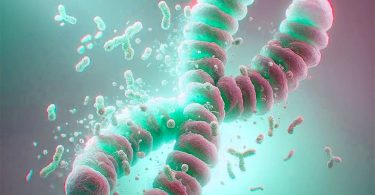Permanent stress, dysregulated biological clocks, hyper sedentary lifestyle, muscle and bone loss, exposure to radiation, ultra-prepared food… The circumstances and effects of the space environment on the human body are similar to those of accelerated aging.
Astronauts carry out numerous scientific studies and collect considerable data; they themselves are under almost constant monitoring.
One such study shows that after just 10 days in space, human cells age faster than the same cells on earth. Exposure to microgravity would generates alterations similar to those of age-related diseases (1).
By studying the loss of bone density in rats placed in simulated microgravity conditions, researchers observed an unexpected accumulation of AGEs, suggesting that glycation, aggravated by microgravity, may be a main cause of sudden accelerated aging in a space environment (2).
These findings are in line with observations of hyperglycemia in astronauts during spaceflight or in simulated microgravity.
As a hostile environment for life, space is an ideal laboratory for studies on accelerated aging and age-related diseases.
Glycation, which evolves very slowly on earth, shows, in a situation of micro gravity, the importance of its role in aging.
© AGE Breaker 06 2023
[Glycation is one of the major causes of aging. Resulting from the fixation of sugars on the proteins constituting the organism, glycation generates toxic compounds that cause cellular aging. Glycation is particularly involved in metabolic disorders, skin aging and cognitive decline.] [AGE BREAKER, patented nutritional supplements, based on rosmarinic acid, recognized by aging specialists around the world for their properties to reverse the effects of glycation.]More on www.agebreaker.com
#agebreaker #glycation #antiaging #longevitymedicine #preventivemedicine #preventivehealth #skinaging #4pmedicine #advancedglycationendproducts
1: S. Vernasi et Al. The challenging environment on board the International Space Station affects endothelial cell function by triggering oxidative stress through thioredoxin interacting protein overexpression: the ESA-SPHINX experiment. Faseb Journal. First published: 02 August 2013. https://doi.org/10.1096/fj.13-229195
2: C-J Liu et Al. The alteration of advanced glycation end products and its potential role on bone loss under microgravity. Acta Astronautica vol 206, May 2023, p 144-122









